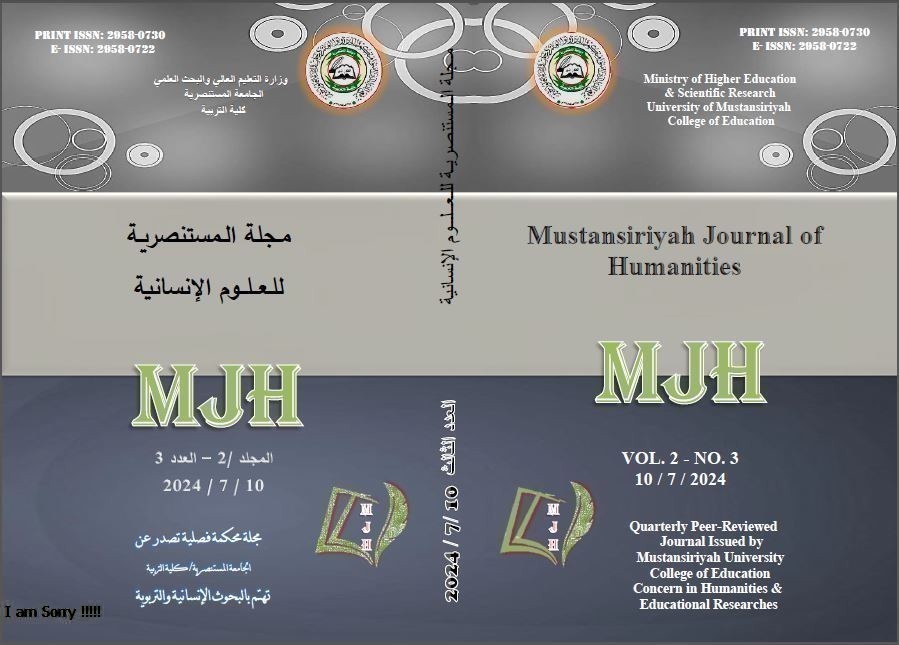Humility of Counselors In Baghdad Schools
DOI:
https://doi.org/10.47831/mjh.v2i4.611Keywords:
humility , counselors ,measurementAbstract
The present study seeks to assess the level of humility among school counselors in Baghdad and examine the importance of variations in humility based on gender and years of experience. In order to accomplish this objective, the investigation utilizes the scale developed by Hassan (2022), which is rooted in Seligman's theory and comprises 23 items categorized into three dimensions: self-acceptance (10 items), compassion and generosity (8 items), and positive interaction (5 items). The scale items are presented in a declarative format with five response options for each item. A total of 200 counselors (both male and female) participate in the scale administration. The validity of the scale in the current study is established through face validity and construct validity, involving the computation of the correlation between each item and the total score of the scale, as well as the factor it represents. The scale's reliability is ascertained through the analysis of variance using Cronbach's alpha equation, yielding an overall reliability coefficient of 0.86, with individual reliabilities for each factor being 0.75, 0.75, and 0.68, respectively. The findings of the study indicate that school counselors in Baghdad exhibit humility in their interactions, as demonstrated by the one-sample t-test. To explore the significance of variations in humility and its dimensions based on gender and years of experience, a two-way ANOVA is conducted, revealing statistically significant differences with respect to the gender variable, favoring male counselors.





